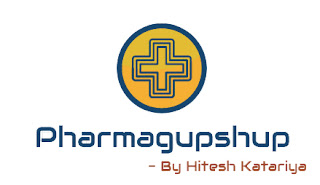 his is the most common claim that we watch on TV, oatmeal, cereal and cornflakes to be having pharmaceutical properties (Lower “bad” cholesterol, manage “diabetes” and so on……the list is endless)!
his is the most common claim that we watch on TV, oatmeal, cereal and cornflakes to be having pharmaceutical properties (Lower “bad” cholesterol, manage “diabetes” and so on……the list is endless)!How does it work? Is it true? Can they really reduce cholesterol?
Any man of medicine and pharmacy would certainly ask these basic questions.
- Question is how can a food product claim that it can reduce cholesterol?
- Is there a clinical study to prove this claim?
- Does the food company perform clinical trail to prove this claim?
- What is FDA doing about such claims?
- If a product claims that it can reduce cholesterol? Should it be called a food product? Or a Drug?
1) Question is how can a food product claim that it can reduce cholesterol?
The Cheerios cereal box makes unauthorized health claims, namely “you can Lower Your Cholesterol 4% in 6 weeks.” Even other products like cornflakes, oatmeal are claimed by the manufacturer to be having cholesterol mitigating properties!If you can understand the mechanism by which these food products decrease the cholesterol, then, you would certainly feel like you are been slapped on the face by a piping hot ‘iron box’.
One oatmeal producer claims in his website “Think of oats as tiny sponges that soak up cholesterol and carry it from your body. Experts believe that it’s the soluble fiber found in oats that helps reduce blood cholesterol levels. How? In simple terms, oat soluble fiber (beta glucan) helps control blood cholesterol by binding some of the cholesterol in your digestive tract. This cholesterol is “trapped” and removed from your body naturally”.
The cholesterol in the ingested food is the only form of cholesterol removed if we take the above claims into consideration. But, what about the cholesterol in the systemic circulation? A person is normally tested for cholesterol content which is already present in his body. Not the cholesterol he is about to take!(In scientific terms, dietary cholesterol is the only form of cholesterol that is prevented from getting absorbed into systemic circulation. And this prevention of absorption is possible only if a person ingests cholesterol rich food as long as the oatmeal remains in the system. If a oatmeal is your breakfast and you go on a eating spree the same day for dinner hoping that the oatmeal will take care of the cholesterol in your food, then, my friend you are in a heap of trouble!)
The other two products i.e., the cereal and cornflakes act by a similar mechanism, reducing the dietary cholesterol.
Some may argue that it is a good thing to eat such food’s for their claims , but, the claim is that Cheerios can lower cholesterol by 4%. If your total cholesterol is 300, 4% of that is 12 which isn’t much of a difference at all.
2) Is there a clinical study to prove this claim?
The Cheerios website states: “ that only certain breakfast cereals can provide the benefits of a soluble fiber, with Cheerios being one of them. Three grams of soluble fiber daily has been proven to substantially lower cholesterol levels; cheerios only contains 1 gram of soluble fiber per cup. Therefore, Cheerios claims that eating three cups of Cheerios cereal daily, in addition to a diet low in saturated fat, will help to reduce elevated blood cholesterol levels. The website offers evidence to support the claim by presenting a clinical study done by Cheerios to test the effects of the cereal on LDL cholesterol levels. The double-blind clinical trial sampled 135 men and women between the ages of 40 and 70, with high cholesterol. First, as a pre-treatment, they were placed on a diet that was low in fat and cholesterol. After this period, participants were randomly placed in treatment and control groups. The treatment group ate a total of 3 ounces of whole grain oat Cheerios per day, which contained 3 grams of soluble fiber, and the control group ate cornflakes that contained no soluble fiber. Results show that the treatment group lowered their cholesterol by 3.8% and their LDL cholesterol levels were lowered by 4.2% compared to the control group. However, the site does not give the source of the clinical study, when it was conducted, or where the information is published. Therefore, consumers should consider that this clinical study may or may not be reliable because there is no verification of publication”.So, there is no published evidence for this claim!
3) Does the food company perform clinical trail to prove this claim?
The company says: ‘we have performed the study’. But there is no published study. It’s a claim, not a fact.4) What is FDA doing about such claims?
There is lot of drama regarding this issue. The FDA has issued a warning letter to the Cheerios manufacturing company (Checkout this website http://www.fda.gov/iceci/enforcementactions/warningletters/ucm162943.html). There is even a cheerios conspiracy and FDA corruption angle (http://ahrcanum.wordpress.com/2009/05/14/cheerios-conspiracy-fda-corruption/).5) If a product claims that it can reduce cholesterol? Should it be called a food product? Or a Drug?
Well, after reading this article I am for sure that you would have come to a conclusion , whether these food products are drugs or simply exaggerated claims by greedy companies.This article was written by me as today is the ‘World Heart Day’. And on every student of pharmacy there hangs a sense of responsibility to educate his parents, elders and his fellow men not to fall prey to such ‘falsely’ health claims. Eat healthy, exercise regularly and be disciplined in what you eat and drink. Do not over indulge. Too much of anything is never good for health.


0 comments:
Post a Comment